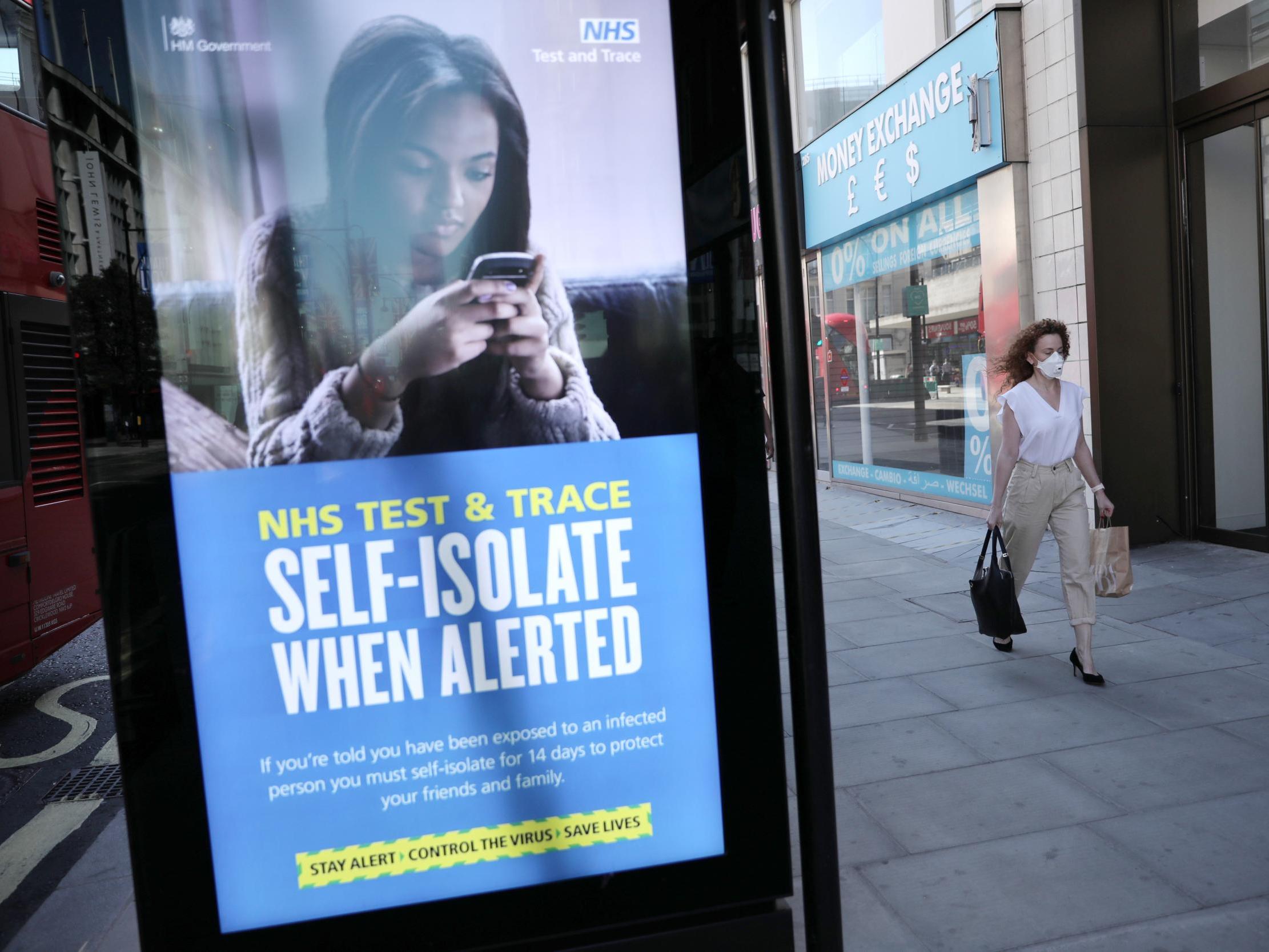The coronavirus tracking app is set up to fail – as a tech analyst, I can tell you exactly why
We could have benefited from using the incredible digital industry at our disposal, writes Anthony Magee. Instead, all that we’ve demonstrated is that the UK is out of touch when it comes to coronavirus


The conversation around the coronavirus test and trace app has gone suspiciously silent. Instead, focus has turned to test and trace strategies, begging the question: what’s happened to the tech? After getting my hands on the app, I’m not surprised that attention has shifted – it simply falls short in a number of areas.
The trial has outdated technology at its heart. It’s not based on the tech most people commonly use. Just working with partners like Google Maps, for example, which is familiar to millions and used daily, would have helped the app to pinpoint user location, exposed people nearby and reminded users of important guidance as they route journeys.
Instead, this app only notifies on interactions after they occur. Considering that the daily government briefings regularly use Google Maps data to track the spread, this is baffling.
Test and trace only works if it can be easily woven into society at scale, so an optional action to download an app without making use of it compulsory for the population as we exit lockdown will only capture data on those who care, rather than the defiant few who risk the R-number rising.
To make a tangible difference to the spread of coronavirus, the app needs about 70 per cent of the population to use it, across the right mix of demographic groups. The current lack of attention paid to incentives to download and use it limits that scale, and also gives the app a very short shelf life. It is already biased towards smartphone users, which excludes large numbers of the population and certainly the elderly and most at risk. But because of the way it tracks data, it is also likely only to be used by people who are already guarding against contact, rather than active uptake by everyone.
Now that the lockdown genie is out of the bottle following the government’s relaxation of coronavirus rules, it’s clear there have been further missed opportunities to help the country to limit further spread. Instead of leading the public to believe that things have returned to normal, the tech should have served as a reminder that coronavirus is still around, and that preventative steps remain necessary.
We are going to need to be reminded, over and over, of what steps we should all be taking to stop a second peak. Preventative reminders, such as issuing alerts to prevent contact with infected people, would be effective here, rather than telling them that contact has already occurred. For example, if you walk into a station, an alert delivered via the BT WiFi network pings a reminder of what precautions to take directly to a user’s device regardless of whether they have the app. Instead, we have a band of recruited tracers trying to do, after potential exposure has already occurred, what an effective algorithm could and should be doing – encouraging effective behaviours in advance.
When you look at Covid-19 app strategies in other countries, they have considered many of these issues. South Korea, which was hailed for arresting the spread early, simply tracked all infected people using a government database to quickly alert them to exposure. Privacy wouldn’t allow that in the UK, but it was highly effective in keeping exposure numbers down, and additional fatalities. Both Google and Apple, potential partners for this project, took steps very early to make their tech more easily trackable. The current Isle of Wight trial app ignores these integrations, when it could so easily have capitalised on them.
The truth is, the test and trace app doesn’t use the best tech or make itself easy to use. What it does do is fall short on preventative measures to instil effective changes in public behaviours. At a time when the UK could have really benefited from a high profile showcase to demonstrate to the world just what the country’s digital industry can do, the reality shows we’re out of touch with the purpose of test and trace.
If people are thinking that an app will help the country to avoid a second peak, sadly from a tech analyst’s perspective, they are sorely mistaken. In its current form, the trial app will neither encourage people to stay alert nor protect the NHS. Most importantly, it is highly unlikely to save lives.
Anthony Magee is director of Data and Experience Technology for SYZYGY
Join our commenting forum
Join thought-provoking conversations, follow other Independent readers and see their replies
Comments